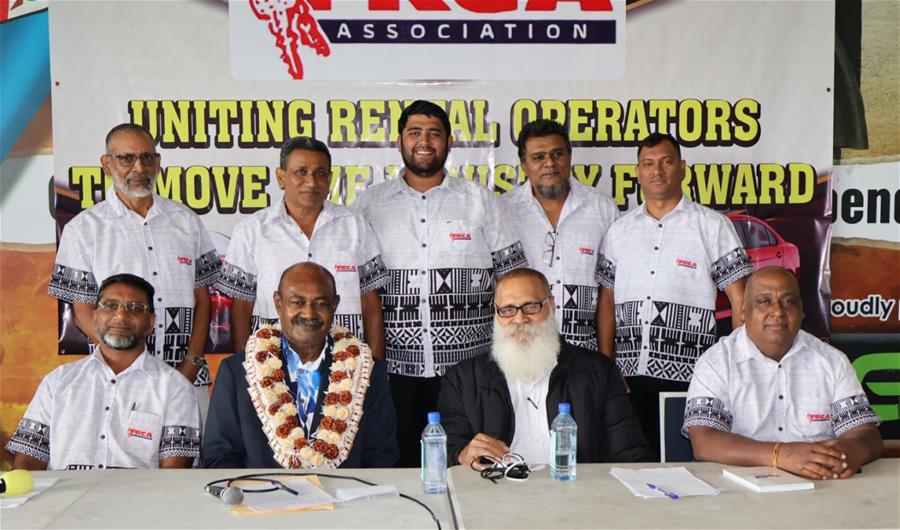SUVA, Fiji (18 June 2025): The rental car sector plays a vital role in shaping the nation’s transportation landscape, says Land Transport Authority (LTA) Board Chairman Inosi Kuridrani, as he reaffirmed the Authority’s commitment to closer collaboration in support of a safer, smarter, and more sustainable transport industry.
Mr Kuridrani made the remarks today, while addressing the Annual General Meeting (AGM) of the Fiji Rental Car Association (FRCA), at Albert Park in Suva.
The AGM brought together rental car operators from across Fiji.
“This AGM is more than a routine meeting—it is a symbol of your commitment to collaboration, progress, and high industry standards," Mr Kuridrani said.
“You are not only key facilitators of mobility for our visitors and tourists—who are the backbone of Fiji’s service sector—but you also provide an essential service to our local communities, ensuring access to safe and reliable transport throughout the islands."
Mr Kuridrani said the Authority viewed the rental car industry as a strategic partner. He said LTA's strategic goal was simple - enable smart, safe, and integrated transport solutions.
"This cannot be achieved in isolation. We must work with you—the practitioners and providers on the ground— to ensure our regulations are practical, our policies are inclusive, and our service delivery is efficient," Mr Kuridrani said.
He acknowledged the operational challenges faced by rental car companies, including compliance, fleet management, and shifting customer expectations, noting that these were not roadblocks but shared opportunities.
“These are not burdens but, opportunities—opportunities for us to work together, hand-in-hand, to build an efficient and sustainable transport system for all," he said.
“We have observed a concerning rise in illegal rental operations. These businesses not only evade taxes and undercut legitimate providers, but more critically, they pose serious safety risks to users and the public."
Mr Kuridrani said the Authority was currently reviewing relevant policies and would take firmer enforcement actions to protect the integrity and reputation of this essential industry.
He stressed that regulation was not meant to burden but protect the interests of compliant businesses and ensure fair competition. “We will work closely with the Association to ensure that standards are upheld and that only licensed, accountable operators are allowed on our roads," Mr Kuridrani said.
“We encourage the Association to continue being proactive in its engagements, to participate in consultations, and to advocate for higher standards and professional ethics within the industry."
The Chairman urged the industry to embrace sustainability and resilience as central pillars of its future operations, aligning with Fiji’s broader economic and environmental goals.
“In the spirit of building our nation economically, socially and environmentally, we must also start thinking about the future—about green transport, digital transformation, and resilient systems that can adapt to climate change, market fluctuations, and technological advancements.”
Association President Mohammed Safik raised concerns regarding the rental sector in Fiji, which were acknowledge by Mr Kuridrani.
“Today’s gathering is a reflection of these difficulties. The strong turnout shows that our members are not only concerned — they are desperate for meaningful dialogue and immediate action.
“This AGM is critical. We have hope. Hope that the LTA and the government of the day will truly hear us. And not just hear — but respond, and respond quickly and positively. If we are to survive as an industry, a shift in approach is not optional— it is essential,” Mr Safik said.
